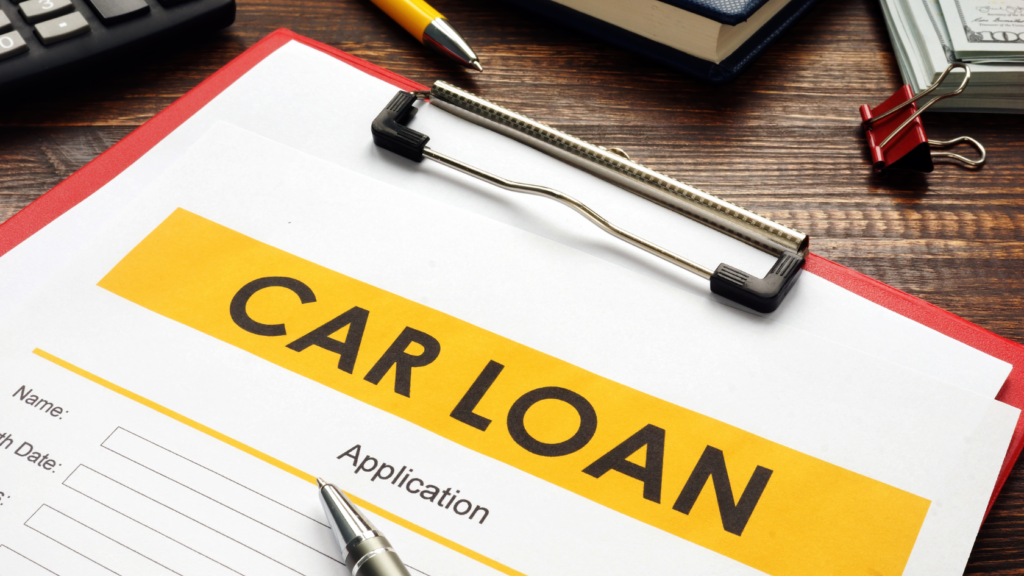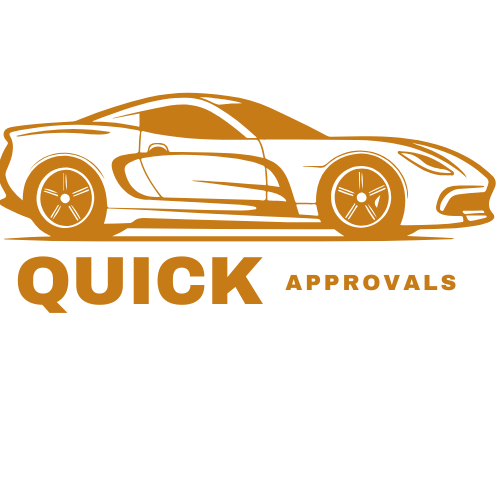If you’re planning to purchase a vehicle in Canada, understanding how to get a car loan from a bank is a crucial step toward making an informed financial decision. Banks offer competitive interest rates and flexible repayment terms, often making them a preferred choice over dealership financing. This comprehensive guide will walk you through the entire process, from meeting eligibility requirements to finalizing your loan. Whether you’re a first-time buyer or looking to refinance, you’ll find actionable insights to secure the best deal. For personalized assistance, visit Quick Approvals to explore your options.
Understanding Car Loans from Banks in Canada
A car loan from a bank is a type of secured loan where the bank provides funds to purchase a vehicle, and you repay the amount over time with interest. The vehicle itself serves as collateral, meaning the bank can repossess it if payments are missed. Unlike personal loans, car loans typically have lower interest rates due to this security, making them an attractive option for financing.
Opting for a bank loan offers several advantages. Banks often provide lower car loan interest rates from banks in Canada compared to dealerships, especially for borrowers with strong credit scores. Additionally, banks may offer terms up to 96 months, allowing for manageable monthly payments. However, securing a bank loan requires meeting specific requirements for bank car loans in Canada, such as proof of income and a good credit history. To understand your financing options better, check out Canada.ca’s guide on car financing.
Requirements for Bank Car Loans in Canada
To qualify for a car loan from a bank in Canada, you must meet certain criteria. While requirements vary slightly between institutions, the following are standard:
- Proof of Income: Demonstrate a steady income through pay stubs, tax returns, or bank statements.
- Employment Verification: Provide employer details or a letter confirming employment duration.
- Credit History: A credit score above 670 is ideal, though some banks offer options for lower scores.
- Down Payment: Some banks require 10-20% of the vehicle’s price, though no-down-payment options exist.
- Driver’s License: A valid Canadian driver’s license to verify identity and driving eligibility.
- Proof of Residency: Utility bills or bank statements showing your Canadian address.
- Vehicle Information: Details like make, model, year, and VIN of the car you intend to buy.
- Proof of Insurance: Full coverage insurance is mandatory before loan finalization.
Some banks, like RBC, offer programs for newcomers with limited credit history, requiring proof of permanent residency or foreign worker status. Always check with your bank for specific requirements for bank car loans in Canada.
How to Apply for a Car Loan from a Bank

Applying for a car loan involves several steps to ensure you secure the best terms. Here’s a detailed guide:
- Check Your Credit Score: Obtain a free credit report from services like Borrowell or Credit Karma. A higher score improves your chances of lower rates.
- Determine Your Budget: Calculate affordable monthly payments, factoring in loan amount, interest, and term. Use a car loan calculator Canada for estimates.
- Compare Rates: Research offers from multiple banks to find competitive car loan interest rates from banks in Canada.
- Gather Documents: Prepare documents needed for bank car loan in Canada, such as ID and proof of income.
- Apply: Submit your application online, in-person, or via a bank’s mobile app.
- Seek Pre-Approval: A pre-approved car loan from bank in Canada clarifies your budget and strengthens dealer negotiations.
- Finalize the Loan: Provide vehicle details and sign the agreement to receive funds.
Be thorough when reviewing loan terms to avoid surprises. For assistance, explore options at Quick Approvals.
Best Banks for Car Loans in Canada

Selecting the right bank can significantly impact your loan terms. Below is a comparison of top banks offering car loans in Canada as of May 2025:
| Bank | APR | Loan Amount | Term |
|---|---|---|---|
| CIBC | From 7.20% | $7,500 minimum | 12 to 96 months |
| TD Bank | From 7.20% | Varies | Up to 96 months |
| RBC Royal Bank | From 7.20% | Up to $75,000 | Up to 96 months |
| Scotiabank | From 7.20% | Not specified | Up to 96 months |
| BMO Bank of Montreal | From 7.20% | Not specified | Not specified |
When choosing among the best banks for car loans in Canada, consider interest rates, loan flexibility, and customer service. Contact banks directly for the latest offers.
Car Loan Interest Rates from Banks in Canada
As of May 2025, the average car loan interest rate in Canada is approximately 7.10%, though rates vary based on credit score, loan term, and vehicle type. Borrowers with excellent credit (700+) may secure rates as low as 4.99%, while those with poor credit may face rates up to 20% or higher. New cars often qualify for lower rates, sometimes even 0% through promotional offers, while used cars typically have higher rates.
To secure the best car loan interest rates from banks in Canada, maintain a strong credit score, opt for shorter terms, and make a substantial down payment. Comparing offers from multiple banks is crucial to finding the most competitive rate.
Documents Needed for Bank Car Loan in Canada

Preparing the right documents streamlines the loan application process. Common documents needed for bank car loan in Canada include:
- Government-Issued ID: Driver’s license or passport.
- Proof of Income: Pay stubs, tax returns, or bank statements.
- Employment Verification: Employer letter or contact details.
- Credit Report: Optional, but banks may request it.
- Vehicle Information: Make, model, year, VIN, and price.
- Proof of Insurance: Full coverage policy details.
- Down Payment Receipt: If applicable.
Verify with your bank for any additional requirements to ensure a smooth application process.
Bank vs Dealership Car Loan in Canada
Deciding between a bank and dealership loan depends on your priorities. Here’s a comparison:
- Bank Car Loan:
- Pros: Lower rates, flexible terms, transparency, direct lender relationship.
- Cons: Stricter credit requirements, longer approval process.
- Dealership Car Loan:
- Pros: Convenience, promotional rates, lenient credit policies.
- Cons: Higher rates, potential upselling, less transparency.
For those with good credit, a bank vs dealership car loan in Canada comparison often favors banks due to cost savings. However, dealerships may be better for quick approvals or special offers.
Pre-Approved Car Loan from Bank in Canada

A pre-approved car loan from bank in Canada involves getting loan approval before car shopping. Benefits include:
- Clear Budget: Know your spending limit upfront.
- Negotiation Power: Act as a cash buyer to secure better deals.
- Faster Purchase: Streamline the buying process.
To get pre-approved, apply with your bank, providing standard documentation. Note that final approval depends on vehicle details, but pre-approval offers a strong starting point.
Using a Car Loan Calculator in Canada
A car loan calculator Canada helps estimate monthly payments based on loan amount, interest rate, and term. For example, borrowing $20,000 at 5% APR for 5 years results in approximately $377.42 monthly payments. To use a calculator:
- Enter the loan amount (car price minus down payment).
- Input the APR.
- Select the term (e.g., 60 months).
- Review the estimated payment.
Try tools like CIBC’s car loan calculator for accurate estimates.
Can I Get a Car Loan from a Bank with Bad Credit in Canada?
Securing a car loan with bad credit is possible, though it often involves higher interest rates. Strategies to improve approval chances include:
- Boost Credit Score: Pay down debts and ensure timely bill payments.
- Larger Down Payment: Reduce the loan amount needed.
- Cheaper Vehicle: Opt for a lower-priced car.
- Co-Signer: Include someone with good credit.
- Alternative Lenders: Consider non-bank lenders for bad credit loans.
Some banks offer subprime lending options, so inquire about programs tailored for those with poor credit.
Frequently Asked Questions about Car Loans from Banks
What are the requirements for bank car loans in Canada?
Typical requirements include proof of income, employment verification, a valid driver’s license, and a good credit score. Some banks offer programs for newcomers or those with limited credit history, requiring proof of residency or foreign worker status.
Can I get a car loan from a bank with bad credit in Canada?
Yes, though expect higher interest rates. Improve your chances by making a larger down payment, choosing a cheaper vehicle, or adding a co-signer with good credit.
What are the documents needed for bank car loan in Canada?
You’ll need a government-issued ID, proof of income, employment verification, vehicle details, proof of insurance, and, if applicable, a down payment receipt.
How does a bank vs dealership car loan in Canada compare?
Bank loans often have lower rates and more transparency but stricter requirements. Dealership loans offer convenience and promotional rates but may include higher costs or upselling.
How can I calculate car loan payments in Canada?
Use a car loan calculator Canada to estimate payments. Input loan amount, interest rate, and term to get results. Tools like CIBC’s calculator are helpful.
Conclusion
Navigating how to get a car loan from a bank in Canada involves understanding requirements, comparing offers, and preparing documentation. By leveraging tools like car loan calculators and seeking pre-approval, you can secure favorable terms. Whether you have excellent credit or face challenges like bad credit, banks offer solutions to fit various needs. For more guidance or to start your application, visit Quick Approvals. Explore authoritative resources at Canada.ca for additional insights.


